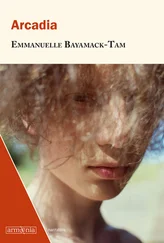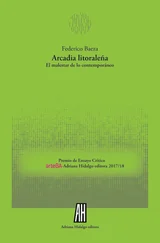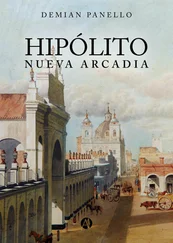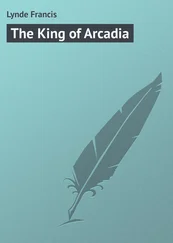Lauren Groff - Arcadia
Здесь есть возможность читать онлайн «Lauren Groff - Arcadia» весь текст электронной книги совершенно бесплатно (целиком полную версию без сокращений). В некоторых случаях можно слушать аудио, скачать через торрент в формате fb2 и присутствует краткое содержание. Год выпуска: 2012, Издательство: Hachette Books, Жанр: Современная проза, на английском языке. Описание произведения, (предисловие) а так же отзывы посетителей доступны на портале библиотеки ЛибКат.
- Название:Arcadia
- Автор:
- Издательство:Hachette Books
- Жанр:
- Год:2012
- ISBN:нет данных
- Рейтинг книги:3 / 5. Голосов: 1
-
Избранное:Добавить в избранное
- Отзывы:
-
Ваша оценка:
- 60
- 1
- 2
- 3
- 4
- 5
Arcadia: краткое содержание, описание и аннотация
Предлагаем к чтению аннотацию, описание, краткое содержание или предисловие (зависит от того, что написал сам автор книги «Arcadia»). Если вы не нашли необходимую информацию о книге — напишите в комментариях, мы постараемся отыскать её.
Arcadia — читать онлайн бесплатно полную книгу (весь текст) целиком
Ниже представлен текст книги, разбитый по страницам. Система сохранения места последней прочитанной страницы, позволяет с удобством читать онлайн бесплатно книгу «Arcadia», без необходимости каждый раз заново искать на чём Вы остановились. Поставьте закладку, и сможете в любой момент перейти на страницу, на которой закончили чтение.
Интервал:
Закладка:
He laughs to himself and the vision dissolves. There is lassitude, the door opening to the cold air and single bundled bodies coming in. The silent waitress ministers to those who sit down. The night draws into morning. Here they are forever, sitting at their tables, separate, alone.
It is Thanksgiving Day.
Grete is napping. The Tofurky roasts among the root vegetables, and Hannah has just sat down beside Bit at the kitchen table, taken a long breath, dived in. She is saying, The trouble is, Bit, that you can’t start to live your life again until you make yourself let go — But the doorbell interrupts her.
Grocery delivery, Bit says, though he knows it isn’t. He feels a little ill. You can give me the business after I tip the man.
All right, she says, disgustedly. She was early at the booze, is on her third tumbler of bourbon already.
Bit buzzes without answering and holds open the door. The elevator pings and the doors part to Abe’s beaming face. He is the same, always. His face has as few wrinkles as Bit’s, and his shoulders and arms are vast from wheelchair racing. He gives Bit a kiss on the cheek, and here is the old scour of beard against Bit’s skin. Abe gestures at the bottle of Pappy Van Winkle bourbon on his lap, Hannah’s favorite, and winks.
Just what we need, Bit says loudly. You can put the groceries down on the kitchen table.
Hannah is rehearsing her interrupted argument with Bit when Abe wheels in. She goes very still. He pushes himself to her. They are the same height, sitting, and he takes her hand. She lets him.
Oh, Abe, she says, after a while. She can’t keep the happiness from her face.
I know, he says. I’m an asshole.
Yes, she says.
But you love me.
Unfortunately, she says.
Haven’t I been punished enough?
Hannah wipes her eyes, still smiling. The problem is, she says, I’m really only punishing myself.
So you think, says Abe. I can’t live without you, my Hannah.
Well, that was my plan, she says. I wanted to kill you.
I know, he says. But wait until you see the house. Honestly, it’s a thing of beauty.
Was it worth it? she says, sour again.
Not a single day of our separation, he says. Not a moment. But if you come back to me, I can have both. The answer, then, would be a solid maybe.
She looks at Abe, her face drawn with exhaustion. Bit is wrenched for a moment out of his own sorrow. He sees now what he should have been attentive to all this time: the terrible hollowness of Hannah’s days. How her body at night would reach for the warmth of Abe beside her, as it had lain there for forty years, only to find a cold sheet; the dry, dusty feel of her anger, how stuffed she was with it, how bitter it tasted on the back of her tongue.
She scowls. Abe smiles and touches her nose with the tip of his finger.
Oh, all right, she says at last. I thought I’d make you beg more, but who cares. We’re not getting any younger. She looks at Bit significantly and says, You only have so many days in your life to try to be happy.
She turns back to Abe and says, Give me a few more weeks until the semester is over and I’ll drive back home to you. You irresponsible, irritating, lying old man.
Abe smiles and leans to kiss her, but she’s not ready for that and pulls away. God. You always get what you want, she says.
Although his voice is apologetic, Abe says quietly, I do.
They eat at four, when the city is so quiet it could be a village. It is dark enough that the thousands of windows Bit can see from his apartment have begun to glow.
This is nice, says Abe, looking out the window at the flicks of falling snow. I always thought it was odd, you living in the city when you were born and raised on a commune in the middle of nowhere. Having to deal with all the pollution and stink and poverty and rats and junk. But days like this, I get it. It’s almost sweet, today. Or, at least, palatable.
Bit tried to live in the country, Hannah reminds Abe. For a little while.
It startles Bit to hear Hannah imply that it hadn’t worked out. Grete, who is chasing a Brussels sprout across her plate with her fork, was the result of that year. How could it have gone better? He thinks of Helle holding Grete for the first time. He had longed for the old way of childbirth, naked behind Helle, helping her rushes, smoothing back her hair, but she had been adamant: No way in hell we’re doing that dirty hippie shit, she’d said, and had scheduled the cesarean. Bit stayed planted at Helle’s head during the surgery in a fug of grief. In the end, though, it didn’t matter. The nurse hustled Grete away and brought her back clean, her face red and round with skin as ravaged as her mother’s, Helle’s as raw as the baby’s, a perfect match, a dovetail of need. At home, Helle’s hunger for her baby surprised Bit. He thought he would be the caretaker, the one who would get up, who would change, who would sing. It was Helle, though, who took over, and he knew the love she had for Grete for what it was: a seamless accord between souls. He tried not to be jealous that neither of the souls was his.
The loss cudgels into him again. His fork full of mashed potatoes is heavy in his hand. He’ll never understand how anyone would walk away from the tiny perfect place between Helle and Grete. He doesn’t believe anyone could.
His parents speak to each other; Hannah dabs cranberry sauce from Grete’s cheek. Bit can only look into the soft sift in the windows where he sees what his parents can’t; not knowing the whole, they can’t understand the lack. He, Bit, had let a coffee go cold in his hands, as he listened to the radio announcer describe how the two planes had flung themselves into the buildings there. Nearly two decades earlier, when he and his parents came into the city, he had named the buildings after Hannah and Astrid, playing with the way everyone in Arcadia had called the women the Twin Towers for their height and blondness; no matter that the buildings themselves grated on his sense of beauty, too awkward in their ambition. He’d grown accustomed to their silhouettes on the skyline. He gave them characteristics shared with their namesakes: Astrid colder, Hannah’s antenna the crown he’d always imagined for his mother. Almost twenty years after he first saw them, the one called Astrid collapsed in a skirt of dust. After that, the one called Hannah. He turned off the radio and felt the sadness well blackly up, and there was no way to tamp it down. It was absurd; thousands had died; his personal loss was a hole in the sky. But he couldn’t help it. He knew enough to get out, on foot, to go to Jincy’s neatnik house in the suburbs, to let her care for him.
The city, he’d thought at first, would do all right: there was hurt but a terrible rage to temper it. He was wrong. Even now, years later, it hasn’t quite rebounded. It winces and holds itself more closely. Even before the global downturn it seemed to Bit as if people were making do with their second-best coats, withholding their fullest joy. On the days that he swings through the city on his walks and watches his fellow creatures move with tight, clipped steps, he can almost grasp what they lost. It wasn’t what they believed; it wasn’t real estate or lives. It was the story they had told about themselves from the moment the Dutch had decanted from their ships onto the oyster-strewn island and traded land for guilders: that this place filled with water and wildlife was special, rare, equitable. That it could embrace everyone who came here, that there would be room and a chance to thrive, glamour and beauty. That this equality of purpose would keep them safe.
It isn’t important if the story was ever true. Bit manipulates images: he knows stories don’t need to be factual to be vital. He understands, with a feeling inside him like a wind whipping through a room, that when we lose the stories we have believed about ourselves, we are losing more than stories, we are losing ourselves.
Читать дальшеИнтервал:
Закладка:
Похожие книги на «Arcadia»
Представляем Вашему вниманию похожие книги на «Arcadia» списком для выбора. Мы отобрали схожую по названию и смыслу литературу в надежде предоставить читателям больше вариантов отыскать новые, интересные, ещё непрочитанные произведения.
Обсуждение, отзывы о книге «Arcadia» и просто собственные мнения читателей. Оставьте ваши комментарии, напишите, что Вы думаете о произведении, его смысле или главных героях. Укажите что конкретно понравилось, а что нет, и почему Вы так считаете.
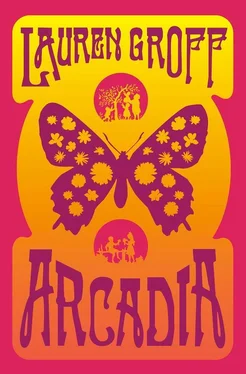
![Andrea Höst - In Arcadia [Touchstone - Extras]](/books/56405/andrea-host-in-arcadia-touchstone-extras-thumb.webp)





